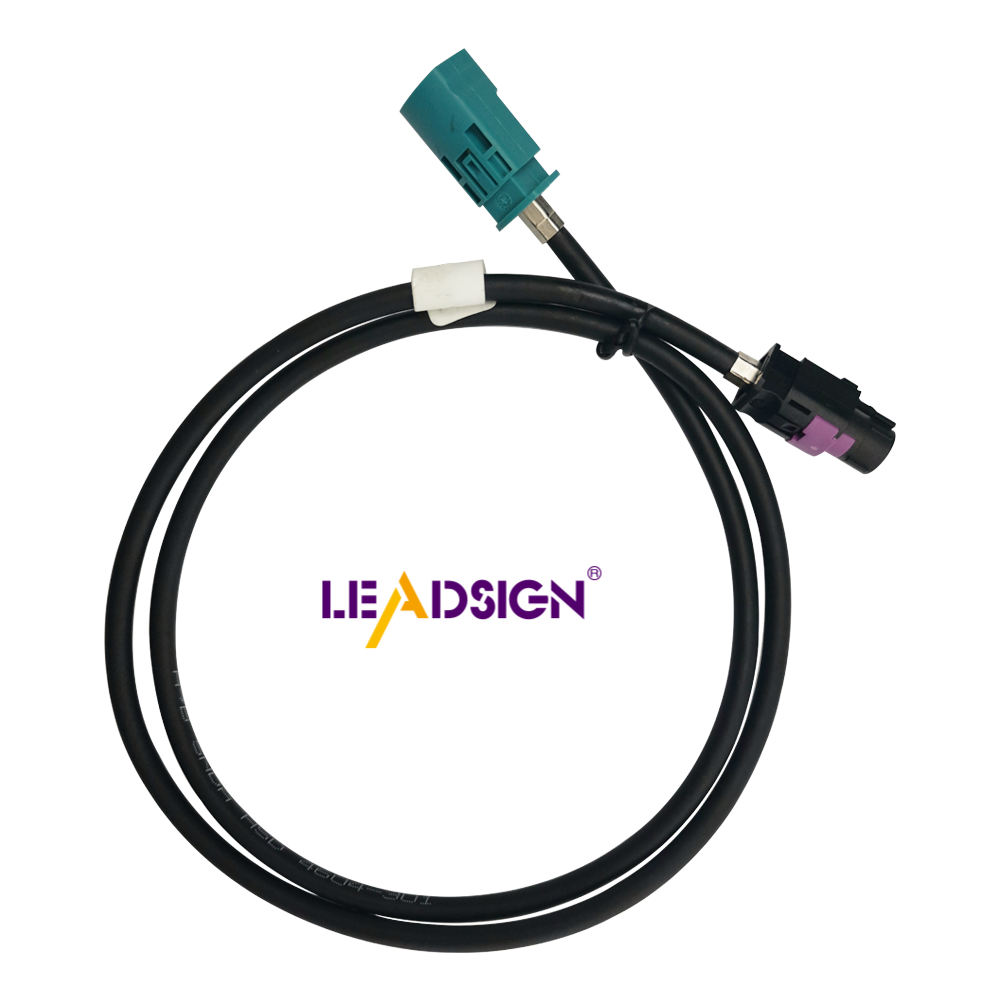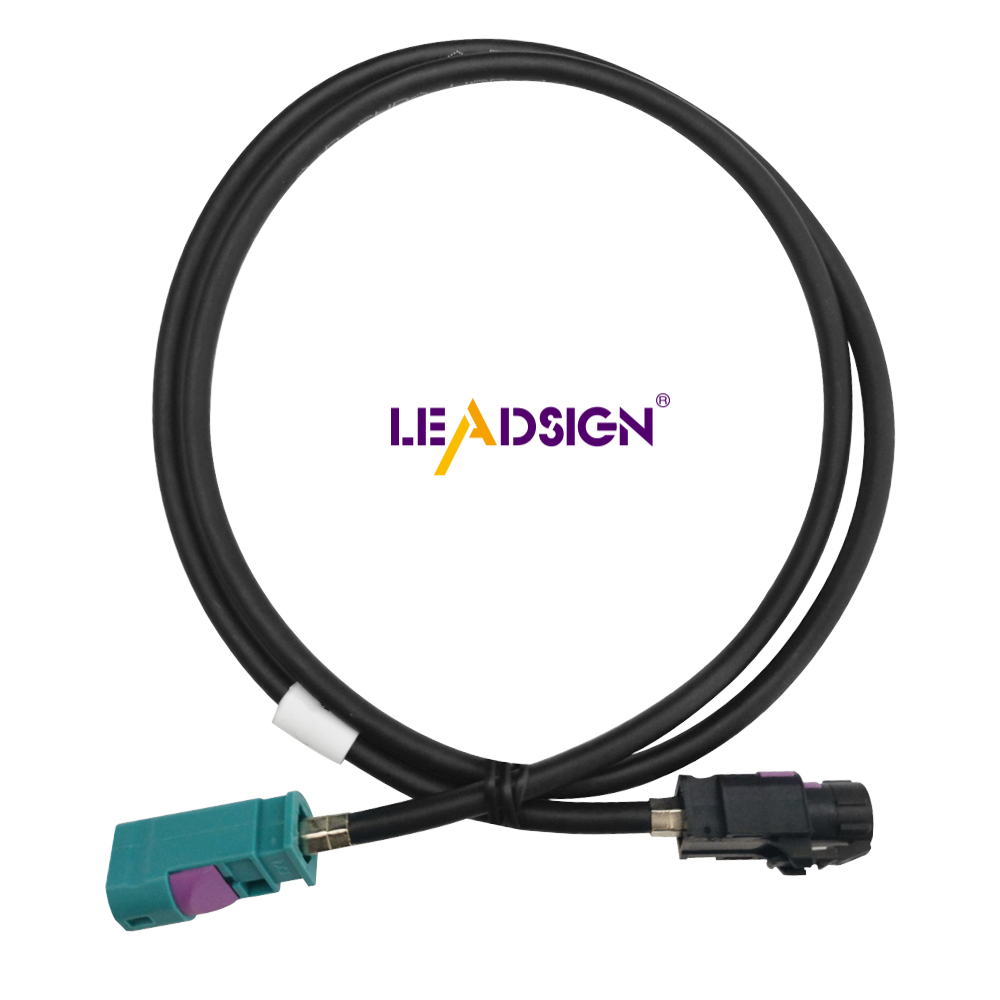A Comprehensive Guide to Types of Wire Connectors Automotive

Image Source: LEADSIGN
In cars, automotive electrical connectors types are very important. They help make sure electrical parts work well together. These connectors are key for your car's performance. They let electronic parts talk to each other easily. There are many types of car electrical connectors, including pigtail connectors, terminal blocks, bullet connectors, scotch locks, flat connectors, round connectors, square connectors, and rectangular connectors. Each type is made for different needs. From wire-to-wire to board-to-board, these connectors keep your car safe and working right.
Understanding Automotive Electrical Connectors Types

Image Source: LEADSIGN
In cars, knowing wire connectors is important. They help parts talk to each other. Let's look at some basic and advanced wire connectors used in cars.
Basic Types of Wire Connectors
Butt Connectors
Butt connectors join two wires end-to-end. Use them to make wires longer or connect different ones. They give a straight connection for electricity flow. Made from copper or brass, they conduct well and resist rust.
Ring Connectors
Ring connectors attach a wire to a stud or screw. They're used when you need a strong, lasting connection. The ring shape makes it easy to attach and remove, great for grounding jobs. They're tough and work well even with lots of shaking.
Spade Connectors
Spade connectors are like ring ones but open-ended. This lets you connect or disconnect without taking out the screw fully. Used often in cars where parts need frequent checks or swaps.
Advanced Wire Connectors
Heat Shrink Connectors
Heat shrink connectors make secure, waterproof links. Crimp them on the wire, then heat to seal tight. This keeps out water, dust, and dirt, good for outside use.
Quick Disconnects
Quick disconnects let you join and separate wires easily without tools. They have male and female parts that snap together fast. Use them when changing parts often is needed.
Knowing these car wire connector types helps you choose right when fixing your car's electrical system. Each type has its job so your car works safely and well.
Specialized Automotive Connectors

In cars, special connectors are very important. They help keep your car's electrical system working well, even in tough situations. Let's look at two main types: weatherproof and high-temperature connectors.
Weatherproof Connectors
Why They're Important
Weatherproof connectors are needed for cars in bad weather. These connectors stop water, dust, and rust from causing problems. They make sure your car's wires stay safe, even when the weather is really bad. This helps your car last longer and work better.
Role of Automotive Electrical Connectors in Vehicle Performance: These keep out heat, water, and rust to work well for a long time.
Types and Features
There are different kinds of weatherproof connectors:
Sealed Connectors: Rubber seals keep water and dirt out. You find them where rain or splash can reach.
Waterproof Connectors: Made for going underwater, they protect more. They're great for off-road or wet places.
Corrosion-Resistant Materials: Some use stainless steel to stop rusting.
High-Temperature Connectors
Why They're Important
High-temperature connectors are used where it's hot. They handle heat from engines or other parts. This keeps your car's wires safe in hot spots.
AI and Machine Learning Algorithms in Automotive Connector Design Optimization: Better performance and lasting use in electric and regular cars.
Types and Features
High-temperature connectors can take lots of heat:
Heat-Resistant Materials: Silicone or ceramic helps with high temperatures. You see them near engines.
Thermal Insulation: Stops heat from moving through the connector.
Durability: Built strong to last long in hard conditions.
Knowing these special car wire connectors helps you pick the right ones when fixing your car. The right choice keeps your car's wires working no matter what it faces.
Picking the right wire connectors is very important for your car. Good connectors help your car run well and last longer. They also cut down on repairs. As cars get better, connectors become smarter too. They protect against weather and work better. When choosing connectors, think about what you need and where they will be used. This smart choice makes your car more reliable and helps it work smoothly.
See Also
Navigating Ford Fakra Connectors: A Comprehensive Overview
Essential HSD Connectors in Automotive: A Fundamental Guide
Significance of FAKRA Connectors in Automotive Implementations

